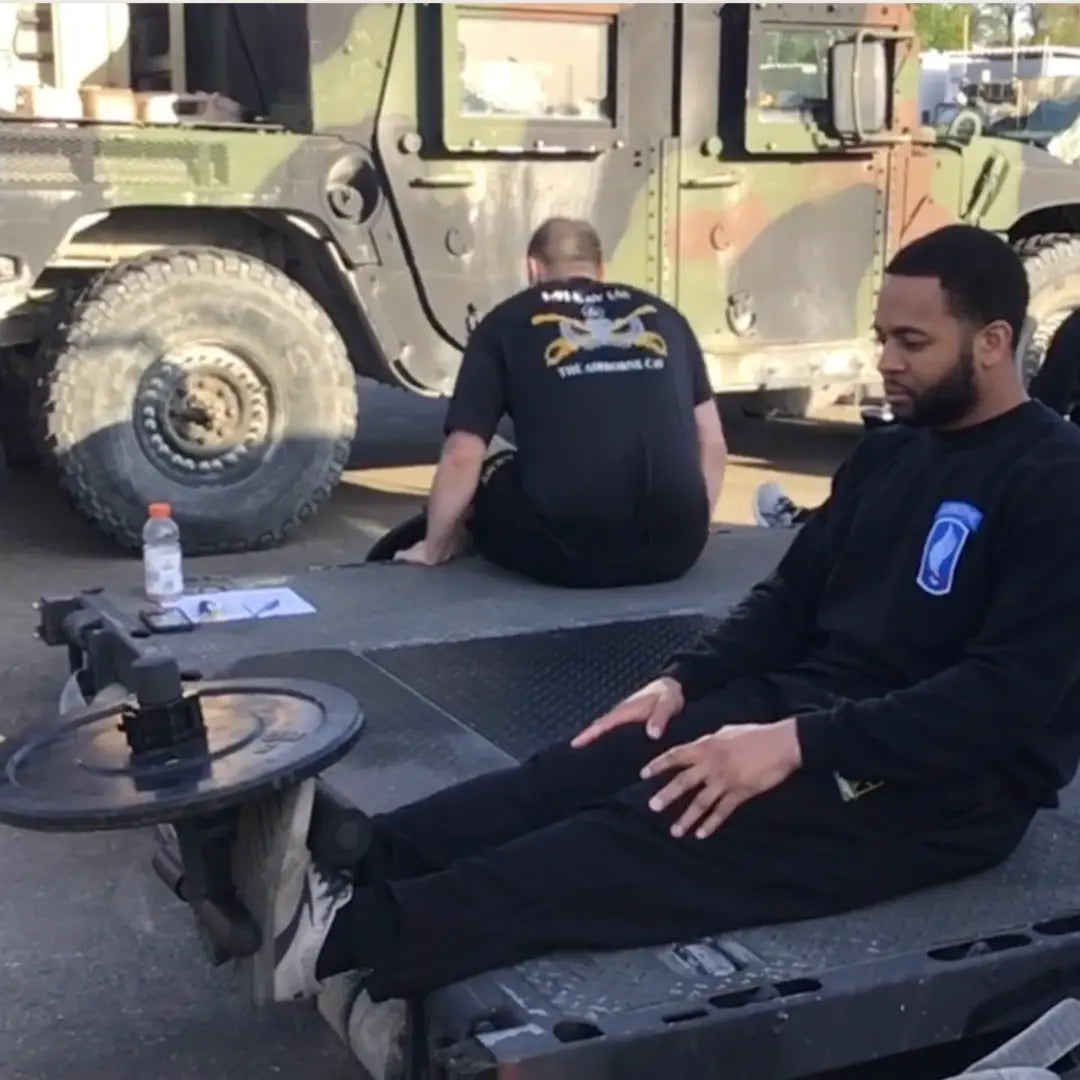As the founder of SquatWedgiez, my passion for enhancing human performance through innovative fitness solutions has driven our mission from day one. The recent completion of a groundbreaking 12-week Tactical Athlete Program at Tower Barracks, Grafenwoehr, Germany, is a testament to this mission. This initiative, which I had the honor of funding and supporting, utilized our Versa Tib Bar and Squat Wedges, marking a significant step in redefining the training landscape for military personnel.
To ensure the program's success, we brought on board Donny Bigham, former Director of Human Performance at Fort Benning, Georgia. Donny has extensive experience in training military personnel, having managed the training of 350-450 soldiers daily and supervised 23 staff members across all human performance domains, including the pioneering Battalion Centric Performance Center for the Conventional Army. His expertise was invaluable in designing and implementing a program that not only met but exceeded our goals for enhancing soldier fitness and resilience.
Revolutionizing Soldier Training with SquatWedgiez Tools
Given the rigorous demands on airborne soldiers, who often carry loads exceeding 30% of their body weight and frequently impact the ground from heights, reinforcing the lower body's musculature is not just beneficial; it’s crucial. By incorporating these tools two to three times each week, we aimed to show that even small integrations could yield substantial improvements in physical performance and injury prevention.
The program used squat wedges and tib bars to reduce the risk of knee and shin pain. They performed heel-elevated squats and toe-elevated calf raises with Wedgiez to strengthen the quadriceps, calves, and the supporting structures of the knee. In addition, the soldiers performed loaded tib bar raises to improve ankle stability and strengthen the muscles surrounding the shin and ankle.This approach ensured that the soldiers not only reduced the risk of stress fractures but also experienced enhanced overall performance due to increased lower body strength.
Transformative Results and Soldier Insights
The results from the Tower Barracks study were compelling (see table below).
|
Table 1: Results
|
Thirty-seven soldiers showed improvements in all eight physical fitness domains assessed. Metrics like squat averages saw an increase from 205 lbs to 230 lbs, and more impressively, the 2-mile run times dropped significantly. However, what truly highlights the program's impact are the firsthand accounts from the soldiers involved:
SM1 shared, “The tools were easy to use and comfortable during training. I could feel my muscles in my lower leg for the first time vs. always feeling soreness in those areas after running and foot marches.”
SM3 commented, “I enjoyed using the heel-elevated slate boards. Most of the time, I cannot squat to end the range of motion, but I could with the slant boards. My quads were super sore after the workout.”
These testimonials reveal not just the physical benefits but also the soldiers' enhanced engagement and satisfaction with their training routines. The emphasis on usability and comfort highlights the program's design effectiveness, making it accessible and beneficial across various fitness levels within the military.
SM5 remarked “For the first time in my military career, I don't feel overtrained. It's a great tool for Airborne Soldiers or a way of keeping in shape.”
This feedback underscores a pivotal shift in military training paradigms—from maximal exertion to optimal performance. It's about training smarter, preserving the soldier’s long-term health, and enhancing combat readiness.
SM9's experience brings a personal touch to the discussion, “I have had issues with stress fractures for most of my military career, and now, with these tools, I know how to prevent them today and in the future.”
The narrative of SM9 illustrates a critical aspect of military training: injury prevention. It’s not merely about recovering from injuries but fundamentally preventing them through smarter training methods and tools.
A Vision for the Future
The overwhelmingly positive response from the participants—17 of 20 soldiers expressed a desire to continue using the Squat Wedgiez Tools—underscores the potential of these tools to become integral to military training regimens. The commander of 1-91 CAV recommended the adoption of these tools into the Soldier's human performance package, a suggestion that aligns perfectly with our vision at SquatWedgiez.
This case study is a beacon for other military units worldwide, demonstrating that integrating targeted, scientifically-backed fitness tools can profoundly impact soldiers' effectiveness and well-being. The 1-91 CAV, 173rd IBCT’s program sets a new standard in military fitness, focusing on tactical athleticism that supports soldiers in fulfilling their arduous duties while maintaining peak physical and mental condition.
As we continue to witness advancements in military training methodologies, the insights from this program will undoubtedly influence broader military training strategies. It’s a testament to the importance of adapting and evolving training regimes to meet modern battlefield demands and the physical welfare of the soldiers facing them.
In conclusion, the Tactical Athlete Program at Tower Barracks is not just a success story for the 1-91 CAV, 173rd IBCT; it's a forward-thinking blueprint for modern military fitness. As military units globally take note of these findings, we anticipate a significant shift towards a more scientifically driven approach to soldier conditioning and injury prevention.
The collaboration with Donny Bigham brought a depth of knowledge and practical experience that was crucial in tailoring the training to address the unique challenges faced by the soldiers. His background in setting up the first-ever Battalion Centric Performance Center for the Conventional Army equipped us with the insights necessary to create a specialized regimen that aligns with the high demands and dynamics of military operations.
The success of this program is a clear indicator of the potential transformative impact of integrating specialized training tools and expert knowledge in military training routines. The enhanced performance metrics and the reduction in musculoskeletal injuries among the participants serve as a strong endorsement for the continuation and expansion of such programs.
As we move forward, our commitment at SquatWedgiez is to continue innovating and providing solutions that meet the evolving needs of military and athletic training. We are motivated by the feedback from the soldiers and the proven success of the program to explore new possibilities and expand our reach. The goal is not only to maintain the high standards we’ve set but to push beyond them, ensuring that every soldier has access to the best tools and knowledge to achieve optimal performance.
The journey with the 1-91 CAV, 173rd IBCT at Tower Barracks has been a profound one, and it is just the beginning. With continued research, feedback, and collaboration, we aim to set new benchmarks in the field of human performance, making a lasting impact on the health and capabilities of those who protect and serve. This case study has laid the groundwork for a new era in military fitness, one that promises greater efficiency, effectiveness, and above all, enhanced safety and wellbeing for our soldiers.





Hinterlasse einen Kommentar
Diese Website ist durch hCaptcha geschützt und es gelten die allgemeinen Geschäftsbedingungen und Datenschutzbestimmungen von hCaptcha.